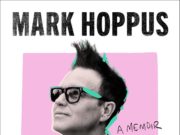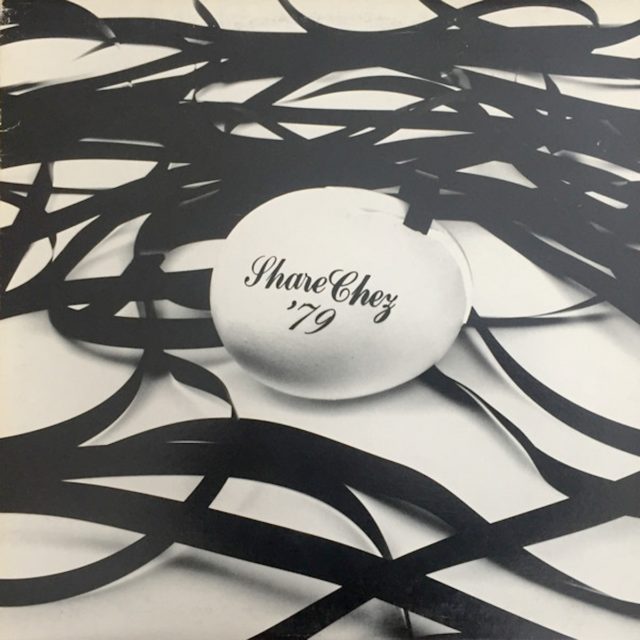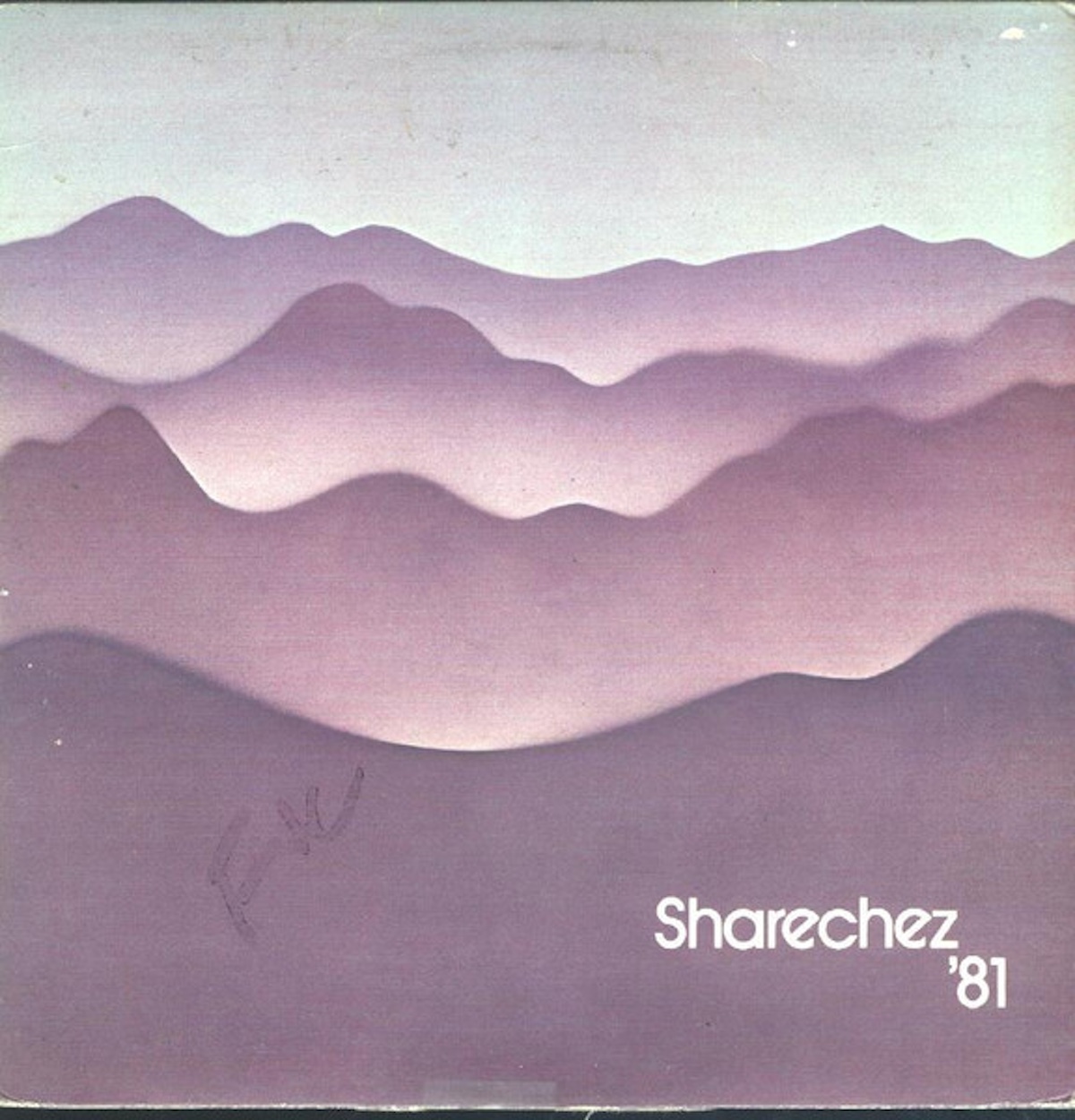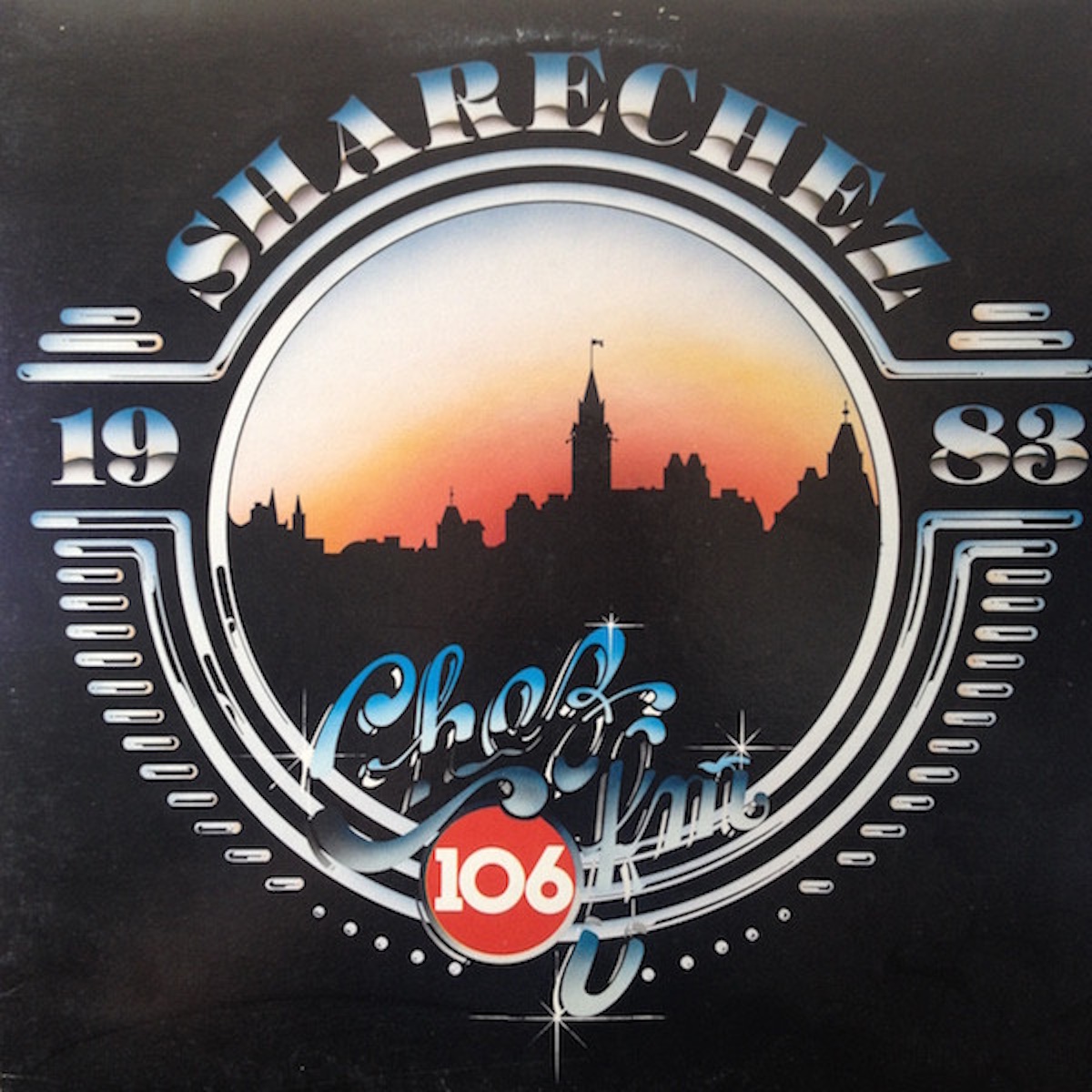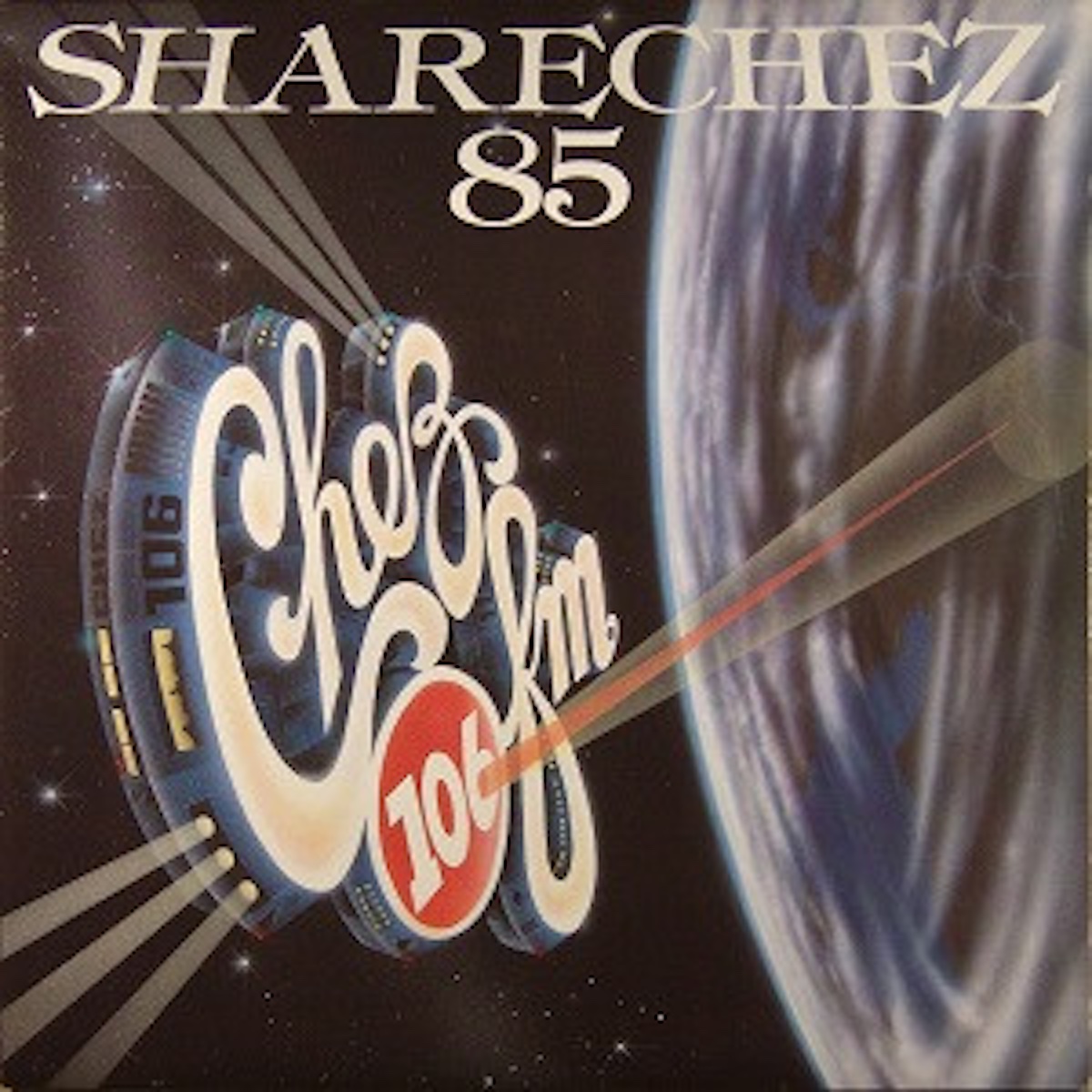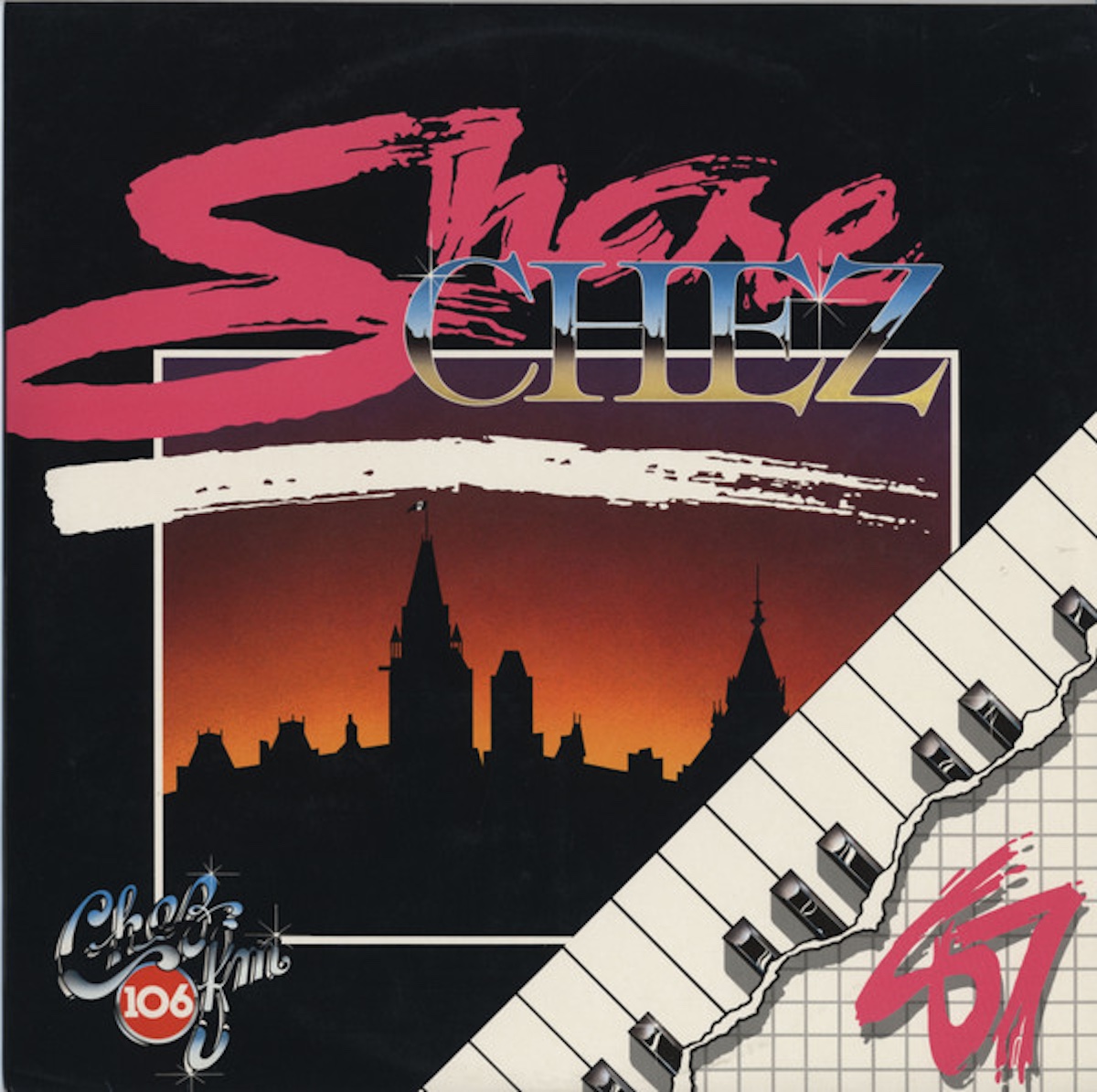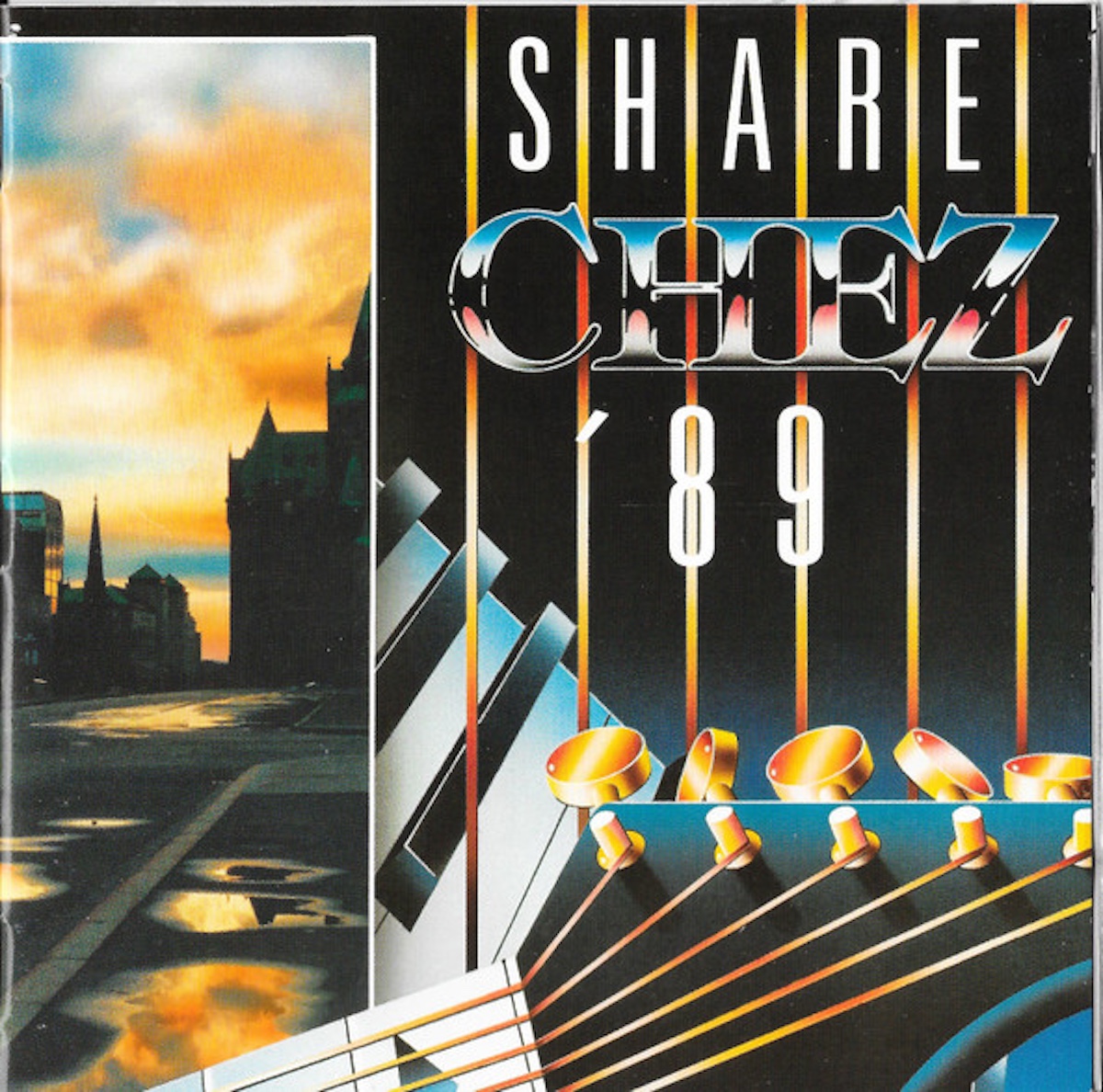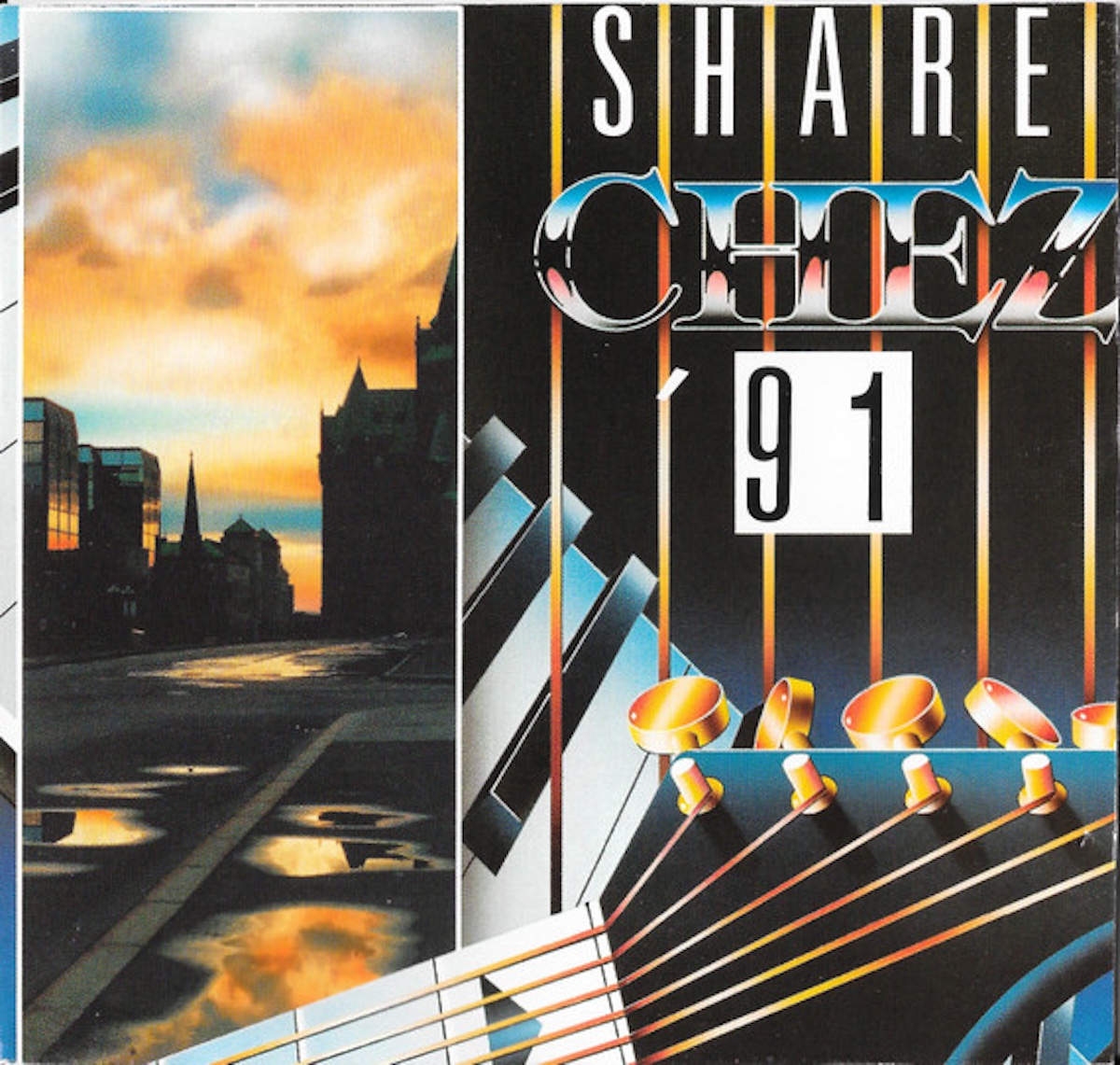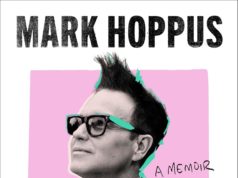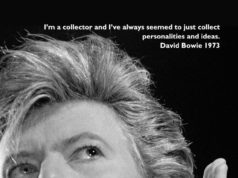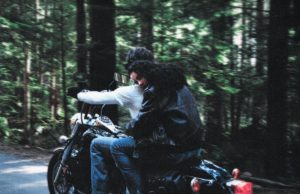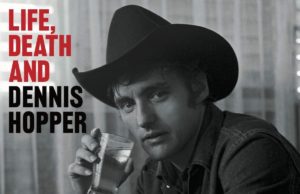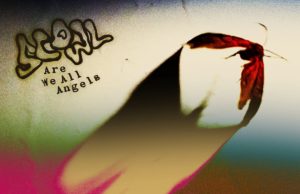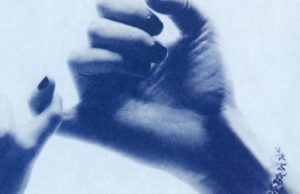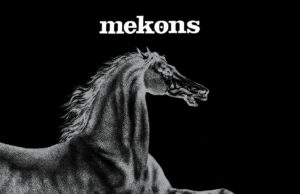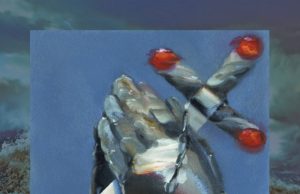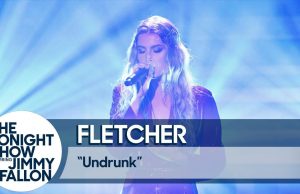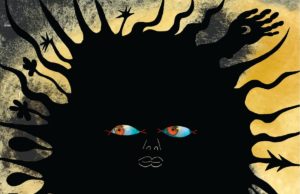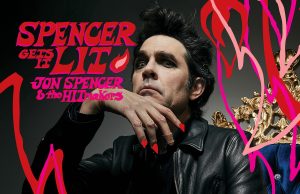 When I was a kid, I fully expected the bands that made it onto Sharechez to be the next Beatles. For those who don’t know: Sharechez was a biennial talent competition held by the Ottawa indie FM rock station CHEZ 106. My mom listened to the top-40 music on the AM stations CHOV (Pembroke) and CFRA (Ottawa), while my dad listened to nothing but CBC. But my teenage brothers and I — 10 years their junior — were only interested in CHEZ. Because we lived 140 kilometres away, we needed one of those Y-shaped wire FM antennas, thumb-tacked to the wall, to tune it in.
When I was a kid, I fully expected the bands that made it onto Sharechez to be the next Beatles. For those who don’t know: Sharechez was a biennial talent competition held by the Ottawa indie FM rock station CHEZ 106. My mom listened to the top-40 music on the AM stations CHOV (Pembroke) and CFRA (Ottawa), while my dad listened to nothing but CBC. But my teenage brothers and I — 10 years their junior — were only interested in CHEZ. Because we lived 140 kilometres away, we needed one of those Y-shaped wire FM antennas, thumb-tacked to the wall, to tune it in.
But it worked. And CHEZ was so damn good that it was worth taping. In the years before I found CBC’s Brave New Waves, and Carleton University’s CKCU, this is where I usually found cool new music. It’s where I first heard AC/DC’s Hells Bells, You Got Another Thing Comin’ by Judas Priest, Rush’s Spirit of Radio and Tom Sawyer, Neil Young’s Welfare Mothers, Abacab by Genesis and April Wine’s Sign Of The Gypsy Queen. One night they played Pink Floyd’s The Wall in its entirety. My brothers were babysitting me that night and bribed me to go to bed with the promise of buying me the Another Brick In The Wall (Part 2) single. I still have it.
By the age of five, I was a huge rock fan. By age eight I was actively seeking the latest great stuff. There was Jeff Winter and Jim Hurcomb, The Source with Brian Murphy on Sunday nights, Steve Colwill, Sheryl Nicholson, Kathy Donovan, Pierre Bourque, Paul Hunks and Ken Rockburn with news and current affairs. For a while, their morning man was the lead singer of Bolt Upright & The Erections. The indie station was cool. A breed apart and easy to root for. WKRP in Cincinnati was still on TV, which fuelled my imagination about what CHEZ 106 might have been like. My brothers and I weren’t alone in our affections, obviously — by 1987, CHEZ had become Ottawa’s No. 1, toppling the mighty CFRA, which had switched to an oldies format the previous year. CHEZ had only been on the air for 10 years by that time, while CFRA was celebrating its 40th anniversary.
CHEZ was great at promotion, due in part to its founder Harvey Glatt, an Ottawa entrepreneur who was a concert promoter and owned the Treble Clef chain of record stores. We had one in our local West End Mall. I bought Elton John’s Jump Up there. Glatt’s Bass Clef concert promotion company brought Jimi Hendrix, Johnny Cash, Bob Dylan, The Rolling Stones, The Beach Boys and Led Zeppelin to Ottawa.
Among CHEZ’s many in-house promotions was Sharechez. Undiscovered regional singers and bands would submit a cassette tape to the station which would give selected submissions airplay and eventually whittle the applicants down to as many as 10 finalists. Those finalists would appear on a CHEZ-produced vinyl (and later CD for the final two editions) compilation album with an overall winner announced. Proceeds from the sale of the compilations would benefit local charities, which ranged from the United Way and local shelters to an effort in 1979 to re-settle Vietnamese refugees in the Nation’s Capital and the Ottawa Valley. The name is pretty clever — a sort-of triple entendre involving the station’s name, a homonym of the French word for “searching” and, of course, sharing new, local talent with listeners while also “sharing” an opportunity for unsigned artists.
The compilations came out every two years, starting in 1979 and ending in 1991. The inaugural winner was a bit of an outlier — an instrumental band. Pop jazz group Single Malt featured Frank Koller on guitar, John Fraser Findlay on keys, Brian Downey on drums and Ron Sures on bass.
“The tune was (also called) Single Malt,” says Koller. “Winning that award was a nice push to keep going and record a whole LP — which came out in 1980.”
Another notable finalist in that first year was Mainstream, which was the duo of Louise Reny and Leslie Howe, who found fame after changing their name to One To One (and later One 2 One). They made three albums and had 10 hits on Canadian radio in the late 1980s and early ’90s. Their big album was 1985’s Forward Your Emotions, which contained the smash Angel In My Pocket. Howe also produced Alanis Morissette’s debut album Alanis in 1991.
I was looking up some of the acts from the ’79 compilation when new wavers Visitor piqued my curiosity. They cut a single of their entry — an original song called Baby Drive On. It was written by the guy who mixed and engineered the recording, Tony Dabreau. The flipside was a cover of Golden Earring’s Radar Love. The single is a hot commodity on Discogs, fetching more than $200. Nearly 20 users have it on their want list. It was recorded in Aug. 1979 at Ottawa’s Sunspot Studio, a place I’ve never heard of before.
The winner of the 1981 event, The Press, also successfully got onto another local radio compilation seven years later in Dartmouth, courtesy of Q104 FM. Their compilation seems to have been a cassette-only release. Another ’81 finalist, Cyndela Whitney was a 29-year-old Brockville singer whose real name was Cindy Lee Whitney. Sadly, she died in Kanata on Aug. 1, 2019. Her obituary shows that being a Sharechez finalist was far from her crowning achievement:
“Cyndela’s most notable accomplishments included a Masters degree in theoretical psychology (1975) from Carleton University in Ottawa; she was also a member of Mensa. She was a writer, poet and author of a published book of poetry entitled All One Sentence (1982), as well as a singer, songwriter, musician, and creative visionary leader of Ottawa-based band Cyndela Whitney And Crucial Moments from 1981 to 1992. She was the first recipient of the Canada Council Arts Grant, Music and Other Forms Division (1982) and the recipient of two Ontario Arts Council grants. Cyndela was considered to be one of the first original and most recognized creative artistic talents based in the Ottawa area throughout the 1970s, 80s and ’90s, and was featured in numerous musical and performance art performances and spoken interviews on national and local radio, television and various printed media during that time. At times displaying an outrageous and outspoken demeanor, Cyndela was very well-liked and respected, she had a deep caring and forgiving nature and had endless compassion for others, especially those closest to her. She was always interested in the human condition, as reflected in her writings.”
Perhaps the most famous winner in Sharechez’s 12-year history was Eight Seconds in 1983. The group formed the year before as a cover band, before starting to write their own material. They submitted one of those — their track, Where’s Bula? The Sharechez ’83 win scored the five-piece video production for the track, which was done by the late Allan White’s General Assembly production company. The video got airplay on MuchMusic and MTV and won the 1984 Canadian Film and Television Association’s Best Music Video of the Year. See it here:
Sponsored by White, the band also recorded a five-song EP called Ottava Rima on his Apprentice Records label. Another song on the EP, Kiss You (When It’s Dangerous), would eventually become the band’s signature song.
CHEZ 106 music director Greg Torrington sent the video and a copy of the EP to U.K. producer Rupert Hine, who was impressed enough to fly to Canada to see the band perform live. Shortly after, Eight Seconds signed with Polygram. At the time, Hine was known as producer of The Fixx, Saga, Howard Jones, The Waterboys, Chris DeBurgh and Tina Turner. Eight Seconds went to England and re-recorded songs from their debut EP, as well as new material for their major-label debut, 1986’s Almacantar. This version of Kiss You (When It’s Dangerous) went to No. 14 in Canada and No. 72 in the U.S. They won a PROCAN award (formerly BMI Canada, which merged with CAPAC in 1989 to form SOCAN) for the song and were nominated for Most-Promising Group at the Junos. Here’s the original Ottawa version, followed by the Rupert Hine version:
There was another pretty popular local band in the running in 1983 — Renfrew’s Metagenesis featuring Darwin Demers, who was in both this band as well as the 1987 winners, Shake The Ghost. The drummer of Shake The Ghost was Mike Wetmore, who was also a member of Sharechez ’91 finalist Joe Gatineau & the Mont Bleu Rockers. Demers and members of Metagenesis served as the backing band for Delmer & Cecil, whose song Valley Lads was issued on a different CHEZ compilation called The Spirit of Rock & Roll in 1982. Metagenesis put out their own LP, Got What She Wants, in 1983.
For their 1987 win, Shake The Ghost were awarded music video production of their winning song Man On The Edge from General Assembly Post-Production Services — the same company which did Eight Seconds’ winning video. Shake The Ghost had to topple a popular Ottawa band — The Fenton Brothers. Mike & Paul Fenton were joined by Goddo drummer Doug Inglis.
But, again focusing on the 1983 event, the opening track on the Sharechez ’83 compilation is Nothing To Show by the Back Alley John Revue — which featured slide guitarist Drew Nelson and would be the first band to feature a teenaged Sue Foley.
The final track on the ’83 compilation is Just Like In The Movies by the band Tactics. Their drummer had the best drummer name of all time — Robert Bangs. Not only was he in this Sharechez finalist band, but he was in the new wave band The Crayons, who were a 1979 finalist, and also in 1985 finalist, Exit 18. In fact, he has the distinction of being the drummer of the final track of the ’83 compilation, and the first one on the successor in 1985.
There was a bit of controversy with the winner of Sharechez ’85, The Republic. Their submission, and debut four-song EP, was produced by the station owner’s daughter Margot Glatt. The Republic put out a 7″ single in 1987 and a self-released, self-titled CD in 2005. There were several other finalists from that year whom I either know, or have at least heard/owned their albums. Dean Batstone (12 LPs to his name!) was a finalist, so too were Screaming Bamboo, whose drummer — Jeb Bond — is a friend of mine. I have both their 1984 EP World of Tomorrow and their 1986 LP Break These Chains. Jeb went on to play drums with Restless Virgins and the excellent Evil Farm Children. Jeb even lent me his drum breakables when Area Resident played the 2018 Barnstorm music festival together (because I’m an idiot). The other two members of Evil Farm Children — Dave Kerr and Janice Fitzsimmons — now have a vintage, psychedelic slide projection light show company called Phantasmagoric. They’ve done lights for two of my live shows.
The Republic’s drummer Mark Craig, says things did indeed get a little spicy but his overriding memory was the after-party thrown by Screaming Bamboo. “Nice folks with lots of class,” he says. The Republic were formed by Kevin Blundell (Slider) and Tim Dupont. They went on to become Love Chain, who scored a deal with MCA after a big
Another Sharechez ’85 band — Demars — already had an album out. I have a copy of it: Les Tele-Tetes. Fantastic new wave.
I’ve seen two different acts lay claim to having won Sharechez ’89 — Johnny M and Raccoons On Ice. Arguably, though, the most popular band to come out of that year’s competition wss The Town Cryers. They put out their debut album Surprise Surprise that year after putting out an EP in 1987 called All’s Well. They also put out another full-length CD called Stanley’s Cup in 2017. Their frontman John Allaire is one of Ottawa’s busiest gigging musicians. Cryers’ guitarist Jeff Tanguay was also a Sharechez finalist in 1985 with his band Gonks Go Beat.
Johnny M was the pseudonym of John Cody, who later co-wrote The Secret Is To Know When To Stop with Tom Cochrane, a track featured on Cochrane’s 1991 album, Mad Mad World.
The busiest musician in the ’89 competition was vocalist Rebecca Campbell who performed with two finalists — Melwood Cutlery and The Fashion Plates — as well as being the lead singer in Fat Man Waving.
Here are the winners for each year (as best I can tell):
1979 | Single Malt
1981 | The Press
1983 | Eight Seconds
1985 | The Republic
1987 | Shake The Ghost
1989 | Johnny M & Raccoons On Ice
1991 | In And Out
There were still Sharechez compilations after 1991 — one in 1994, for sure — but there was no competition. The CDs were just a collection of songs performed in-studio for the station’s own unplugged series. Proceeds from the 1994 CD went to the Union Mission (now known as the Ottawa Mission) shelter.
Glatt sold CHEZ to Rogers in 1999. When you search the station’s website archive, there is nothing at all about Sharechez. The albums are found in many discount bins at used record stores and thrift shops around Ottawa, as well as on Discogs. Here’s a playlist of all the finalists I could find who actually have songs up on Spotify:
• • •
Area Resident is an Ottawa-based journalist, recording artist, music collector and re-seller. Hear (and buy) his music on Bandcamp, email him HERE, follow him on Instagram and check him out on Discogs.





